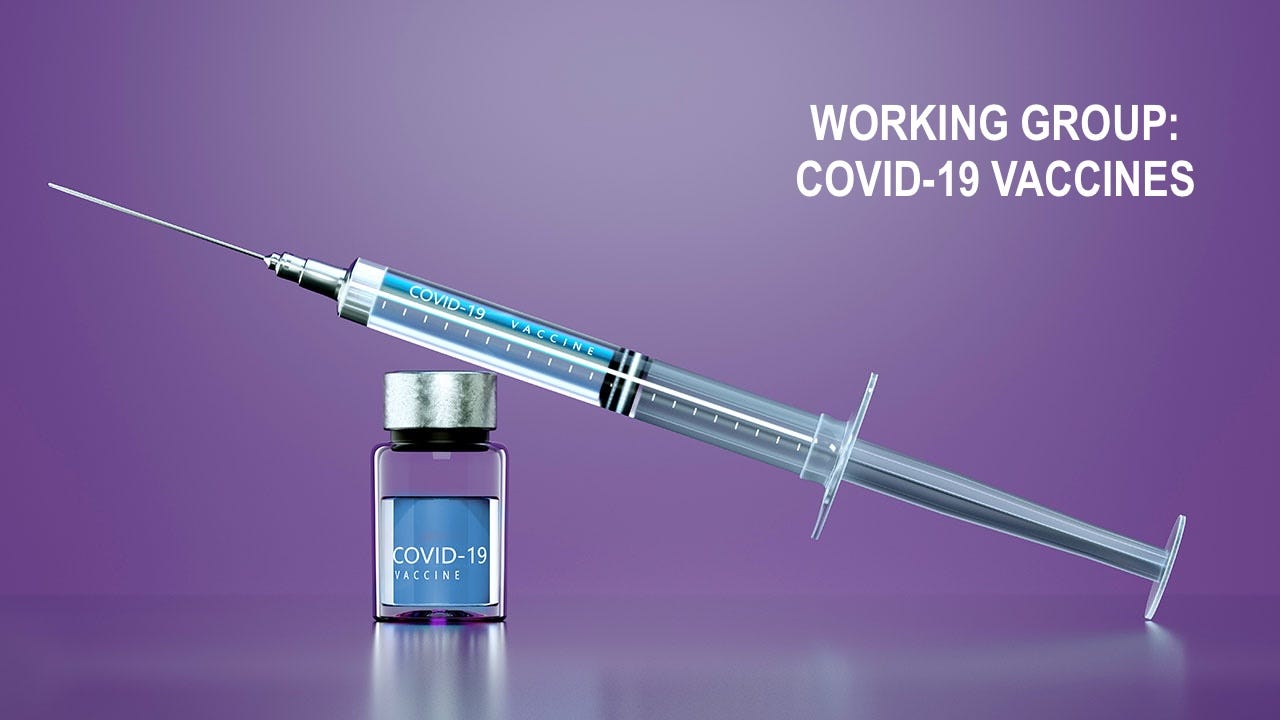The scandal over flawed data that the CDC presented to the Advisory Committee on Immunization Practices (ACIP) members, that percolated earlier this week, is now starting to boil over.

The leading voice calling for broad change to the vaccine approval process at the CDC is new ACIP member, Dr. Retsef Levi, a professor of operations management at MIT’s Sloan School of Management. Levi recently spoke with investigative journalist, Dr. Maryanne Demasi.

What Levi told her has already led fellow ACIP member, Dr. Robert Malone, to conclude that mRNA Covid vaccines previously assessed as “safe and effective” may have been falsely approved.
But whereas Dr. Malone’s focus is on short-term problems with data following the use of one medical product, Dr. Levi suggests that those problems necessitate a broader, deeper look at CDC data analysis. In his interview with Demasi, Dr. Levi details how assumptions about mRNA vaccines dating back to the Covid era have been demonstrably false. “The initial safety paradigm was that the vaccine contents would only stay in the arm and be cleared after a short duration,” Levi tells Demasi. “Now we know that’s not true – so we need to understand the biodistribution and persistence of the mRNA, the spike protein, and the lipid nanoparticles, and what their respective risks are.”
According to Levi, a lack of attention to the long-term effects of mRNA vaccines has led to unsatisfactory conclusions.

“The current post-marketing pharmacovigilance systems aim to track specific adverse events that fit into well-known diagnoses like myocarditis or heart attacks and focus on occurrence soon after vaccination,” Levi says. “For example, they will assess the occurrence of adverse events within a week or a month post-vaccination. However, these systems are not designed to identify adverse events that don’t fit one diagnosis, involve non-specific symptoms, or take longer to emerge.”
In other words, vaccine safety surveillance systems won’t find what they are not looking for. And if safety issues appear beyond ‘expected time frames’, they could be ignored.
With people reporting long-term effects from Covid vaccines, this appears to be exactly the case.
Levi added, “So we cannot merely rely on CDC data or existing surveillance systems. We must look further – at the wider scientific literature, published or not – and understand things like the product’s pharmacokinetics and other related biological mechanisms. We also have to look at the clinical experience in the field. As I already said, these are not traditional vaccines where you control the dose and distribution within the body. With mRNA vaccines you don’t.”
Levi is calling for a wider lens of data to make sure that vaccine adverse reactions are captured. He is also opening the door to allow physicians treating people who report they are vaccine injured to communicate their clinical observations.
These suggestions are so reasonable that one wonders why they were not implemented years ago.
Myocarditis is recognized as an adverse Covid vaccine reaction. Levi points out that in addition to long-term cardiovascular problems, compromised immunity, and possible DNA contamination during manufacturing, it is also plausible that, even 700 days after vaccination, the human body can still be making spike protein as a result of the mRNA mechanisms in the vaccine. Further, Levi acknowledges mRNA vaccines can be considered gene therapy rather than a traditional live or dead virus vaccine.
Levi also posits that post-vaccination symptoms are more varied than the heart condition, myocarditis, which some doctors have focused on. “When you read through the literature, the statement that the only harm the Covid-19 vaccines cause is myocarditis—seems to me very detached from reality,” said Levi. “We need a far more nuanced approach that does not just look narrowly at short-term specific diagnoses but instead looks more broadly at what we know about potential harms. This is the only way we can rebuild and sustain trust in vaccines.”
In our Wednesday article, Think You Can Trust CDC Data? Think Again, The MAHA Report detailed information released by Dr. Malone – like Levi, a new member of ACIP. He writes that the CDC gave him incomplete and perhaps manipulated data about Merck’s new monoclonal antibody, Clesrovimab, a treatment meant to fight Respiratory Syncytial Virus (RSV) in infants whose mothers are not recently vaccinated for RSV.
“ACIP members were shown partial analyses that downplayed safety concerns,” Dr. Malone writes, “while broader and more troubling patterns remained off the table.”
Malone notes that the CDC’s selective reporting prevented ACIP committee members from fully assessing Clesrovimab’s mortality risks. He credits Professor Levi, one of only two ACIP members who voted against Clesrovimab after learning that “Four different trials all show deaths going in the same direction.”
In other words, the actual data on Clesrovimab appears to show that it may be associated with an increased risk of infant death.

Malone, who voted to approve Clesrovimab, now concedes trusting the data was a mistake. “I will no longer be able to trust that what is presented in CDC summaries to the ACIP is transparent, accurate, and unbiased,” Dr. Malone writes.
Not trusting CDC data is a stunning statement from an ACIP member and a big deal for scientists and the public alike. If the government was wrong on Clesrovimab what else have they been wrong about?
As Demasi reports, ACIP plans to investigate the CDC data scandal and whether Covid vaccines approved in 2020 were approved by ACIP based on corrupted data.
Levi has been appointed chair of the CDC’s new Covid-19 vaccine working group. “For the first time,” Dr. Demasi writes, “federal advisers will investigate the unresolved issues that have dogged the vaccines since their rushed rollout in late 2020.”
She’s not the only one who should feel excited about this. We all should.
Key takeaways:
- Public health officials and much of the private research sector has dangerously neglected studies into the long term risk profile of mRNA COVID vaccines.
- Long term risks from mRNA Covid vaccines are far more diverse than short term cardiac dangers.

What Kennedy’s Critics Don’t Want You to Know About Vaccines, Liability, and Conflicted Science

Why We Desperately Need Healthy Soil

Will West Virginia Allow Childhood ‘Religious Exemptions’ to Avoid State Vaccine Mandates?

MAHA ‘Wins’ of the Week








Lorem ipsum dolor sit amet, consectetur adipiscing elit. Suspendisse varius enim in eros elementum tristique. Duis cursus, mi quis viverra ornare, eros dolor interdum nulla, ut commodo diam libero vitae erat. Aenean faucibus nibh et justo cursus id rutrum lorem imperdiet. Nunc ut sem vitae risus tristique posuere.
Lorem ipsum dolor sit amet, consectetur adipiscing elit. Suspendisse varius enim in eros elementum tristique. Duis cursus, mi quis viverra ornare, eros dolor interdum nulla, ut commodo diam libero vitae erat. Aenean faucibus nibh et justo cursus id rutrum lorem imperdiet. Nunc ut sem vitae risus tristique posuere.